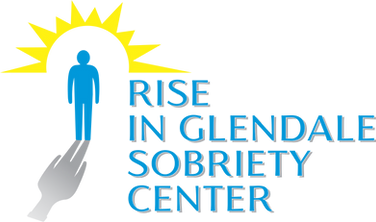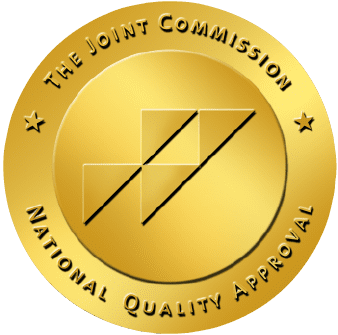Heroin Addiction Rehab
in Los Angeles
Rise Sobriety Center is a premier facility dedicated to the treatment of heroin addiction. Our center combines the tranquility of its location with advanced treatment methodologies to provide an ideal environment for recovery. With a commitment to fostering a holistic recovery, our mission is to empower each client to achieve sustained sobriety. We understand the complexity of addiction, and our program is designed to address each facet of this debilitating condition, ensuring a comprehensive approach to recovery.
Understanding
Heroin Addiction
Heroin is one of the most addictive substances known, and its abuse can lead to devastating psychological and physical health issues. According to the National Center for Drug Abuse Statistics, 902,000 Americans use heroin annually. Those seeking recovery and their loved ones must understand the dynamics of heroin addiction, which can manifest in physical dependency and profound behavioral changes.
Signs of
Heroin Addiction
Recognizing the signs of heroin addiction is crucial for timely intervention and effective treatment. Heroin addiction can manifest through a range of physical, behavioral, and psychological symptoms, which can significantly disrupt an individual’s life. Understanding these signs helps in identifying whether someone might need help, which is a critical step toward recovery.
Physical Signs of Heroin Addiction
Physical signs of heroin use often begin with short-lived euphoria followed by prolonged periods of drowsiness. As use becomes more frequent, more noticeable symptoms may appear, such as constricted “pinpoint” pupils, sudden weight loss, visible marks from needle injections, slurred speech, excessive sleepiness, neglect of personal hygiene, frequent respiratory infections, nausea, vomiting, itching, and flushed skin.
Behavioral Changes Indicative of Heroin Use
Behavioral changes are also evident in those struggling with heroin addiction. These changes may include withdrawing from social and family activities, losing interest in hobbies once enjoyed, lying or stealing to fund the heroin habit, increased secrecy about activities, wearing long sleeves to hide marks of injection, frequent unexplained absences, and associating with known drug users.
Psychological and Emotional Effects of Heroin
The psychological impact of heroin is profound, affecting the user’s emotional and mental state. Users may exhibit mood swings or personality changes, emotional instability, depression or apathy, reduced sensitivity to pain, anxiety or paranoia, disorientation, a decrease in motivation, and difficulties with decision-making.
Why Choose Rise Sobriety Center
for Heroin Addiction Treatment
Choosing the right heroin rehab facility is a pivotal step in the journey to recovery. Rise Sobriety Center stands out due to our integrated treatment approach that combines medical, psychological, and holistic therapies. Our team consists of highly skilled professionals, including doctors, psychologists, and therapeutic staff, who are dedicated to providing compassionate and effective care. We create a nurturing environment that respects the dignity of each client, with personalized treatment plans that are tailored to the specific needs of individuals, ensuring a more effective and sustainable recovery.

Our Drug Rehab
Process
The journey to recovery at Rise Sobriety Center is structured and thorough, designed to cater to the various aspects of heroin abuse through a series of strategic, interlocking phases of rehabilitation. Each phase of our substance abuse treatment is aimed at tackling different elements of drug addiction, from physical dependency to psychological resilience, ensuring a holistic recovery.

Assessment and Personalization
Upon entry, each client undergoes a comprehensive assessment to determine the extent of their addiction and any co-occurring mental health issues. This assessment is crucial as it guides the customization of the treatment plan. We consider factors such as the duration of addiction, usage patterns, physical health, psychological state, and personal circumstances. This detailed evaluation ensures that each treatment plan is tailored to meet the individual needs of our clients, setting the groundwork for effective recovery.

Heroin Detox
Detoxification is the first active step in the physical recovery from heroin addiction. Under constant medical supervision, this process ensures that heroin is safely and effectively cleared from the body. The medical detox phase can be challenging due to heroin withdrawal symptoms that occur as the body adjusts to the absence of the drug. Symptoms can range from mild anxiety and agitation to severe pain and discomfort. Our medical team is equipped to administer appropriate medications to manage these symptoms and provide support, making detoxification as comfortable as possible.

Therapy and Counseling
After the detox program, clients transition into various forms of therapy, which are the core of our treatment process. This phase includes:
- Individual Counseling: One-on-one sessions with a therapist allow clients to delve into the underlying causes of their addiction, addressing issues like trauma, stress, and self-esteem, which are often at the root of substance abuse.
- Group Therapy: By participating in group sessions, clients gain insights and support from peers who are also on the path to recovery. This setting fosters a sense of community and shared experience, which is vital for emotional healing.
- Family Therapy: Addiction affects not just the individual but the entire family. Our family therapy sessions aim to repair and strengthen family relationships and educate family members on how to support their loved one’s recovery journey effectively.

Aftercare and Ongoing Support:
Recovery from heroin addiction is an ongoing process that doesn’t end upon leaving the treatment center. Our aftercare programs are designed to support clients as they reintegrate into their daily lives. These programs include outpatient treatment, ongoing therapy sessions, support groups, and access to community resources like sober living homes. Our team works to develop a personalized aftercare plan for each client, ensuring that they receive the support necessary to sustain their sobriety in the long term.

Holistic Approaches
Alongside traditional evidence-based therapies, we offer holistic treatments to promote overall well-being. These include yoga, meditation, art therapy, and acupuncture. These practices help reduce stress, enhance emotional balance, and improve physical health, which are all crucial for individuals recovering from heroin addiction.

Therapeutic Modalities
At Rise Sobriety Center
Our rehab center employs a variety of therapeutic modalities to address the multifaceted nature of heroin addiction:
- Cognitive Behavioral Therapy (CBT): A cornerstone of our therapeutic approach, CBT helps clients modify negative behaviors and thought patterns that contribute to addiction.
- Holistic Treatments: We believe in the power of holistic care to enhance traditional therapies. Our programs include yoga, meditation, acupuncture, and nutritional counseling, all aimed at healing the whole person.
Preparing for
Rehab
The preparation for entering rehab is as crucial as the treatment itself. We guide our clients through the process of preparing for their stay, detailing what items to bring that can provide comfort and a sense of familiarity, and what to expect during their time in treatment. This preparation helps alleviate anxiety and sets the stage for a focus on addiction recovery.
Admissions Process
The admissions process at Rise Sobriety Center is streamlined to ease the way for potential clients. Prospective clients and their families can reach out to us through various channels, and our admissions team is ready to help with every step, from initial inquiries to the finalization of admission. We discuss everything from the scope of our programs to insurance coverage and payment options, ensuring clarity and preparedness for the journey ahead.

Overcome Heroin Addiction
at Rise Sobriety
Recovery from meth addiction is not just a possibility but a reality at our addiction treatment center. With our comprehensive treatment programs and dedicated support, we empower our clients to reclaim their lives and achieve lasting sobriety. If you or a loved one are struggling with a substance use disorder, we invite you to take the first step towards a healthier, drug-free life by contacting our drug rehab center today.
Your Journey to Living a Life Free of Addiction, Starts Here!
Frequently Asked
Questions
Our addiction treatment center’s unique approach lies in our comprehensive, integrated treatment plans that combine medical, psychological, and holistic therapies tailored to each client’s specific needs, ensuring a personalized and effective recovery journey.
The duration of treatment varies depending on individual needs but typically ranges from 30 to 90 days. We also offer extended care and outpatient programs for continued support.
Families are integral to the recovery process, and we offer extensive family support services including educational programs, family therapy sessions, and resources to help families cope and aid in the recovery of their loved ones.
We provide ongoing support through alumni programs, support groups, individual therapy, and relapse prevention strategies to help our clients achieve lasting recovery.
Yes, we provide a continuum of care that includes outpatient programs to ensure ongoing support and treatment, helping individuals maintain sobriety and integrate back into their daily lives.
Our relapse prevention strategies include continuous education, support groups, individual counseling, and the development of a comprehensive aftercare plan tailored to each client’s needs to manage triggers and maintain sobriety.

